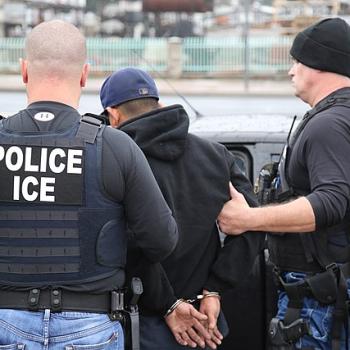Many traditional Christians have responded with alarm over the President's reelection despite his stances on abortion, same-sex marriage, and religious liberty. Some discern that the modern electorate has perhaps irretrievably divorced itself from America's spiritual heritage.
"For the first time in our history, in the election of President Barack Obama, we have a President who has publicly disagreed with a huge portion of the Christian population on abortion and same sex marriage," observed United Methodist evangelical leader and former Asbury Theological Seminary President Maxie Dunnam. "While in the past he has not made his position explicitly known, he did so in this campaign, which contributed to his reelection." He suggested: "Christendom is collapsing, if it has not already done so." This collapse may be a "blessing," Dunnam said, as the church learns how to serve on the "margins."
Somewhat similarly, Southern Baptist Theological Seminary President Albert Mohler rued: "Evangelical Christians must see the 2012 election as a catastrophe for crucial moral concerns," having reelected a "radically pro-abortion President to the White House, soon after he had endorsed same-sex marriage." Mohler also cited the passage of initiatives in four states permitting same-sex marriage. "Clearly, we face a new moral landscape in America," he said, confronting a "worldview challenge that is far greater than any political challenge, as we must learn how to winsomely convince Americans to share our moral convictions about marriage, sex, the sanctity of life, and a range of moral issues."
Catholic priest Father Phillip De Vous, a scholar with the Acton Institute, pronounced post-election that the "President and his administration have been the most historically anti-life, anti-liberty, and anti-orthodox Christianity in the history of the nation." And he warned that "conservative causes that take their bearings from the truths and moral rationality offered by the Judeo-Christian political and philosophical tradition will continue to be marginalized, the Church's liberty will be increasingly restricted, and the long march of leftism, hedonism, and materialism, with their attendant anomie and nihilism, will continue unabated through our public institutions."
Such a grim future may in fact await us. Or beyond the current administration headed by an historic figure with much wider personal appeal than most on the Left, the nation may return to policies more in sync with traditional faith and mores. Only God completely knows the future, and He often has surprises.
Stark moral conflicts in America are not new. Certainly the Civil Rights struggle, lasting a century, was a battle to codify Christian moral teachings about human equality that were never before enacted or at least enforced in law. The eighty-year battle over slavery was even more apocalyptic, culminating in civil war and 600,000 dead. Even strewn across those decades were dozens if not hundreds of other intense cultural conflicts that often or at least seemed, to align the angels against forces of darkness.
Many northern Protestants and other moralists in the late 19th century believed as Republican newspaper editor Horace Greeley did about the moral turpitude of the opposing party. "Point wherever you please to an election district you will pronounce morally rotten, given up in great part to debauchery and vice, whose voters subsist mainly in keeping policy offices, gambling houses, grog shops, and darker dens of infamy, and that district will be found at nearly or quite every election, giving a majority to that which styles itself the 'Democratic' party."
Republican puritans were not altogether exaggerating. Northern Democratic urban political machines were often closely aligned with saloons, and the accompanying casinos, pornographic theaters, brothels, bath houses, including, it must be assumed, abortion mills, which performed their grisly work even then, though slightly more covertly after reforming legislation. The Temperance and Prohibition Movement were the swelling reaction against politically protected vice. The moral stakes were even higher as Republicans, again not entirely inaccurately, portrayed Democrats as the party of sedition during the Civil War. Of course Democrats had their own moral crusaders who eventually emerged, such as evangelical William Jennings Bryan, who inveighed against the immorality of octopus like banks and eastern corporations.
The morals and spirituality of a culture or nation ebb and flow, seldom following a straight line for constant good or evil. To what extent America now enters a new epoch of spiritual conflict we cannot yet fully know. But even anticipating the worst, despair and fatalism of course are not options for people of faith. The God of the Bible, in His constant mercy, constantly throws open doors for return to Him. There will be the increased temptation for many Christians toward cultural withdrawal. And perhaps some are called to step back to focus on rebuilding the crumbled edifice of the Church in America. Neo-Anabaptists especially will grow increasingly insistent that all believers must reject the "empire" in favor of exclusive focus on the Body of Christ. But nearly every Christian tradition calls at least some of the faithful to cultural and political engagement, no matter the adversity.




